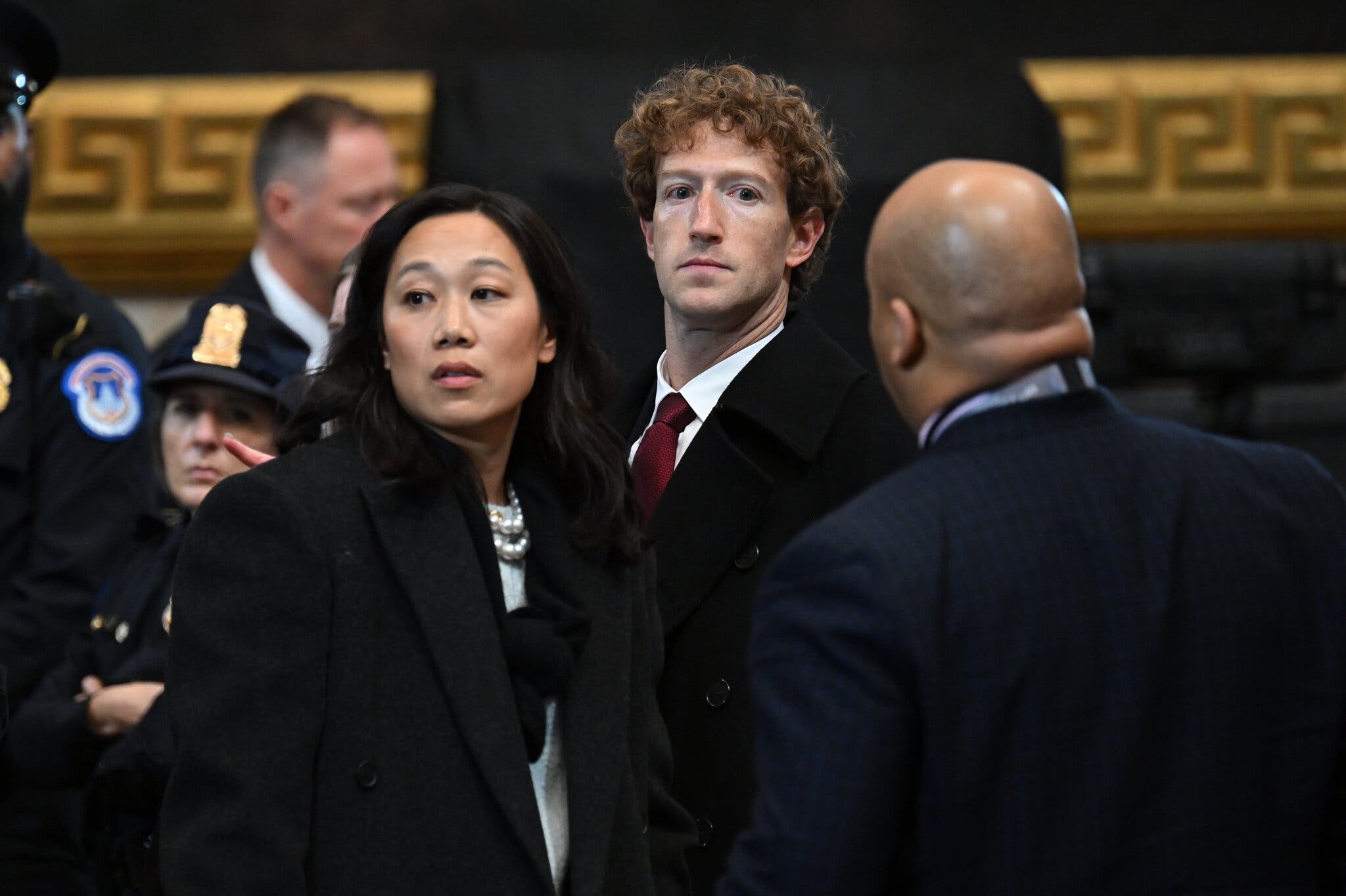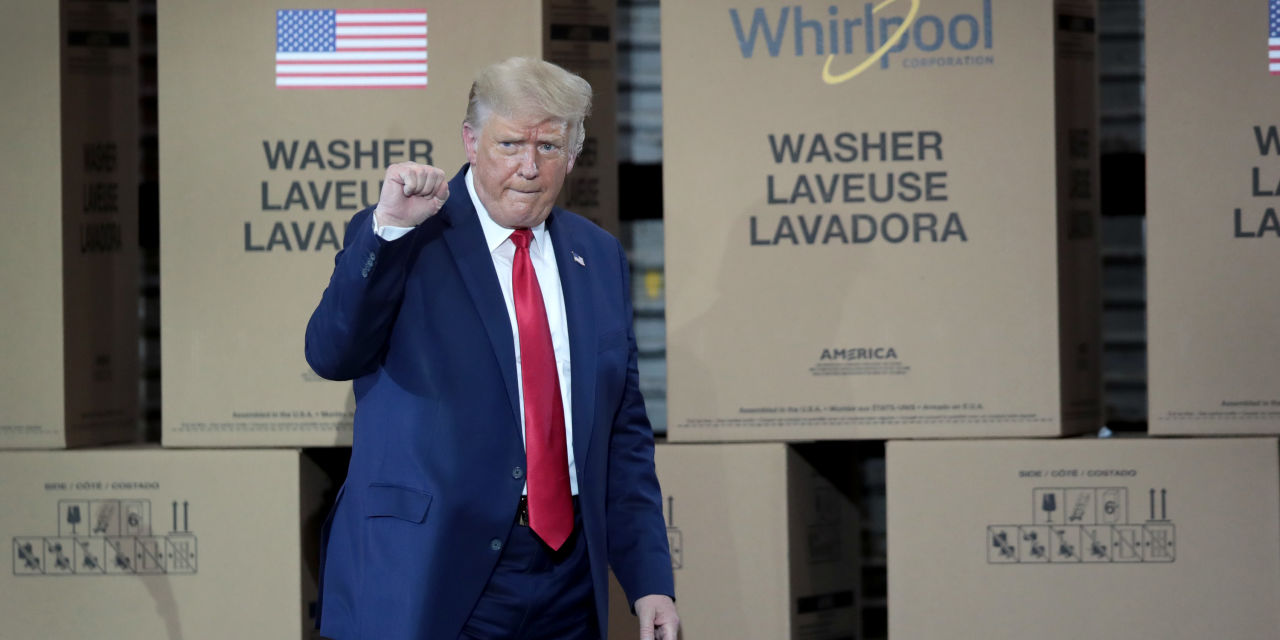Mark Zuckerberg And The Trump Administration: A New Era For Facebook

Table of Contents
The Cambridge Analytica Scandal and its Fallout
The Cambridge Analytica scandal served as a watershed moment, exposing the vulnerability of Facebook user data and its potential for misuse. This data breach, involving the harvesting of personal information from millions of Facebook profiles without their consent, became a global controversy. The scandal's repercussions extended far beyond Facebook itself, sparking widespread debate about data privacy and prompting calls for stricter regulation worldwide.
-
The scale of the data breach: Cambridge Analytica improperly acquired the data of up to 87 million Facebook users, leveraging this information for targeted political advertising during the 2016 US presidential election and other campaigns globally. This raised serious concerns about the potential for manipulation and the erosion of democratic processes.
-
Zuckerberg's congressional testimony: Mark Zuckerberg's appearance before the US Congress was highly anticipated and marked a turning point in public perception. His testimony, while aiming to address concerns, faced intense questioning and criticism regarding Facebook's data protection practices and its responsibility in the scandal.
-
Regulatory pressure and fines: The Cambridge Analytica scandal triggered significant regulatory pressure on Facebook globally. The company faced substantial fines and investigations from various regulatory bodies, including the UK's Information Commissioner's Office and the Federal Trade Commission (FTC) in the US. These actions highlighted the growing international focus on data protection and accountability for social media platforms.
-
Stricter data privacy policies: In response to the scandal and mounting regulatory pressure, Facebook implemented stricter data privacy policies and enhanced its data security measures. These changes, while significant, have continued to be scrutinized for their effectiveness and transparency. The implementation of GDPR in the EU further amplified the pressure to comply with rigorous data protection standards.
Political Advertising and the Spread of Misinformation
The Trump era coincided with increasing concerns about the spread of misinformation and foreign interference in elections through social media platforms like Facebook. The platform's role in disseminating political advertising and its impact on public discourse became a central point of debate and investigation.
-
Challenges of regulating political advertising: Regulating political advertising on a global scale presents significant challenges for Facebook. Different countries have varying legal frameworks and standards, making it difficult to enforce consistent policies across borders. The issue of political speech versus misinformation remains a central point of contention.
-
Combating fake news and manipulative campaigns: Facebook implemented measures to combat fake news and manipulative campaigns, including fact-checking initiatives and algorithms aimed at detecting and flagging misleading content. However, the effectiveness of these measures has been consistently debated and criticized, with critics arguing that these efforts are insufficient.
-
Transparency and accountability: Debates around transparency and accountability in political advertising intensified. Calls for greater disclosure of the sources and funding of political ads, along with more stringent verification processes, gained momentum following revelations of Russian interference in the 2016 US election.
-
Section 230 and content moderation: The role of Section 230 of the Communications Decency Act, which shields online platforms from liability for user-generated content, became a major point of contention. The Trump administration considered reforms or even repealing Section 230, raising concerns about the impact on freedom of speech and content moderation on platforms like Facebook.
Regulatory Scrutiny and Antitrust Concerns
The Trump administration's era saw increased regulatory scrutiny of Facebook, extending beyond data privacy to encompass antitrust concerns. Investigations into the company's market dominance and potential monopolistic practices became increasingly prevalent.
-
FTC investigations and settlements: The Federal Trade Commission (FTC) launched investigations into Facebook's business practices, leading to substantial fines and settlements related to data privacy violations and antitrust concerns. These actions signaled a significant shift in regulatory approach towards tech giants.
-
European Union's GDPR: The EU's General Data Protection Regulation (GDPR) imposed stringent data privacy regulations on companies operating within the EU, including Facebook. The GDPR significantly impacted Facebook's data handling practices and contributed to a global trend toward stronger data protection laws.
-
Monopolistic power of Facebook: Ongoing debates continue regarding the monopolistic power of Facebook and other social media giants. Concerns are raised about the impact of this power on competition, innovation, and the spread of misinformation. These concerns have fueled antitrust investigations and calls for regulatory intervention to promote a more competitive market.
-
Future antitrust actions: The possibility of future antitrust actions and regulations remains a significant factor in shaping the future of Facebook and the broader social media landscape. These actions could lead to structural changes within Facebook or even its potential breakup.
The Impact of Section 230
Section 230 of the Communications Decency Act played a crucial role in the debate surrounding online platforms' responsibility for user-generated content. The Trump administration's stance on Section 230, which involved threats of repeal or significant reform, created uncertainty and impacted Facebook's content moderation strategies. The debate centered on balancing freedom of speech with the need to address harmful content, misinformation, and foreign interference.
Conclusion
The relationship between Mark Zuckerberg and the Trump administration significantly impacted Facebook's trajectory. The Cambridge Analytica scandal, concerns about political advertising and misinformation, and increased regulatory scrutiny resulted in lasting changes to Facebook's data privacy policies, content moderation practices, and overall approach to its role in society. The legacy of this era continues to shape the ongoing debate surrounding the regulation of social media and the responsibilities of powerful tech companies. Understanding this complex interplay is crucial for navigating the future of Facebook and the digital world. Continue exploring the impact of Mark Zuckerberg and the Trump administration on Facebook’s future to better grasp the evolving landscape of social media regulation.

Featured Posts
-
 Trump Meets With Walmart And Target Executives On Rising Tariffs
Apr 23, 2025
Trump Meets With Walmart And Target Executives On Rising Tariffs
Apr 23, 2025 -
 Milwaukee Brewers Dominate Rockies Chourio Delivers 5 Rbis
Apr 23, 2025
Milwaukee Brewers Dominate Rockies Chourio Delivers 5 Rbis
Apr 23, 2025 -
 Brewer Nestor Cortes Strong Return Leads To Reds Third Straight Loss
Apr 23, 2025
Brewer Nestor Cortes Strong Return Leads To Reds Third Straight Loss
Apr 23, 2025 -
 Royals Strong Performance Leads To 11 1 Win Over Brewers
Apr 23, 2025
Royals Strong Performance Leads To 11 1 Win Over Brewers
Apr 23, 2025 -
 Razgrom Rostova Spartakom Itogi 23 Go Tura Rpl
Apr 23, 2025
Razgrom Rostova Spartakom Itogi 23 Go Tura Rpl
Apr 23, 2025
